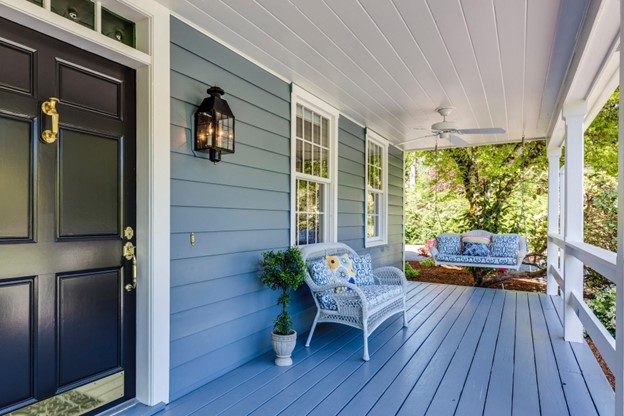Published August 23, 2022
A Guide To Choosing Between a Forever or a Starter Home

Photo by Unsplash
One of the first steps in searching for your first home to purchase is to decide between a starter home and a forever home. Which is the better choice for you? What can you afford? This guide from the real estate pro at Team Senter can help you answer those questions and provides advice on further considerations.
What
Are the Pros and Cons of a Starter Home?
A starter home is a smaller property, generally reserved for those who want to
spend more conservatively and potentially inhabit for a shorter period. One of
the pros of buying this type of property is that you typically spend less on a
down payment and overall costs. A starter home can also become a significant investment if you decide to rent when you move
out. Additionally, it gives you the opportunity to better understand the
housing market and what goes into purchasing and owning a home.
There
are cons as well. For example, starter homes often require more repairs. They
can also be difficult to sell. Additionally, if you outgrow a starter home
faster than you intended, it can become inconvenient.
What
Are the Pros and Cons of a Forever Home?
A
forever home is meant to be your permanent residence for a much longer period.
Some pros of a forever home are that they are generally much larger and come
more equipped to handle a growing family. However, the cons
of a forever home include the much higher price tag and the significant
commitment to upkeep. You also have to consider that a forever home may require
more renovations to make it more amenable to your style
and needs. However, these changes can be done slowly over time to accommodate
your budget. Keep in mind that the more custom your home is, the more difficult
it could be to sell it.
What
Else Do You Have To Consider?
Your Budget
Now
is the time to go over some other important elements of the process you'll need
to consider. For example, what is your budget? Research shows that most first-time home buyers spend an average of 7%
of the home's value on a down payment and between 1% and 2% on closing costs.
However, the more you are able to put down, the lower your monthly costs will
be.
Warranties and Insurance
Have you thought about insurance costs? You will need to insure your home
as well, but homeowners insurance policies do not cover repairs to damaged
home systems and appliances. You'll need a home warranty for that. The standard
insurance policy will pay to repair structural damage, replace stolen
belongings, and any liability for injuries on your property. A warranty will
cover the repair of major appliances and systems, such as heating and
cooling. Choosing
the best home warranty company comes down to great customer
service, competitive pricing and solid coverage.
Mortgage Options
You'll
need to research mortgages as well. This means lenders will check your credit
score, income, employment history, and other financials. You should consider researching your own financial status
before meeting with any lenders and be sure to research all your funding
options. You can often find nontraditional lenders online.
Patience
is an asset for any new homeowner. The process of buying a house is exciting,
but if you move too quickly, you may find yourself in over your head. Take your
time to assess which type of home is right for your circumstances, and practice
due diligence when it comes to your credit, loan and protecting your
investment. It will feel like a bit of a mountain to climb, but in the end your
efforts will be worth it.
Ready to find your new home? Connect with Team Senter today! (469) 323-6074
by Lisa Walker of neighborhoodsprout.org





